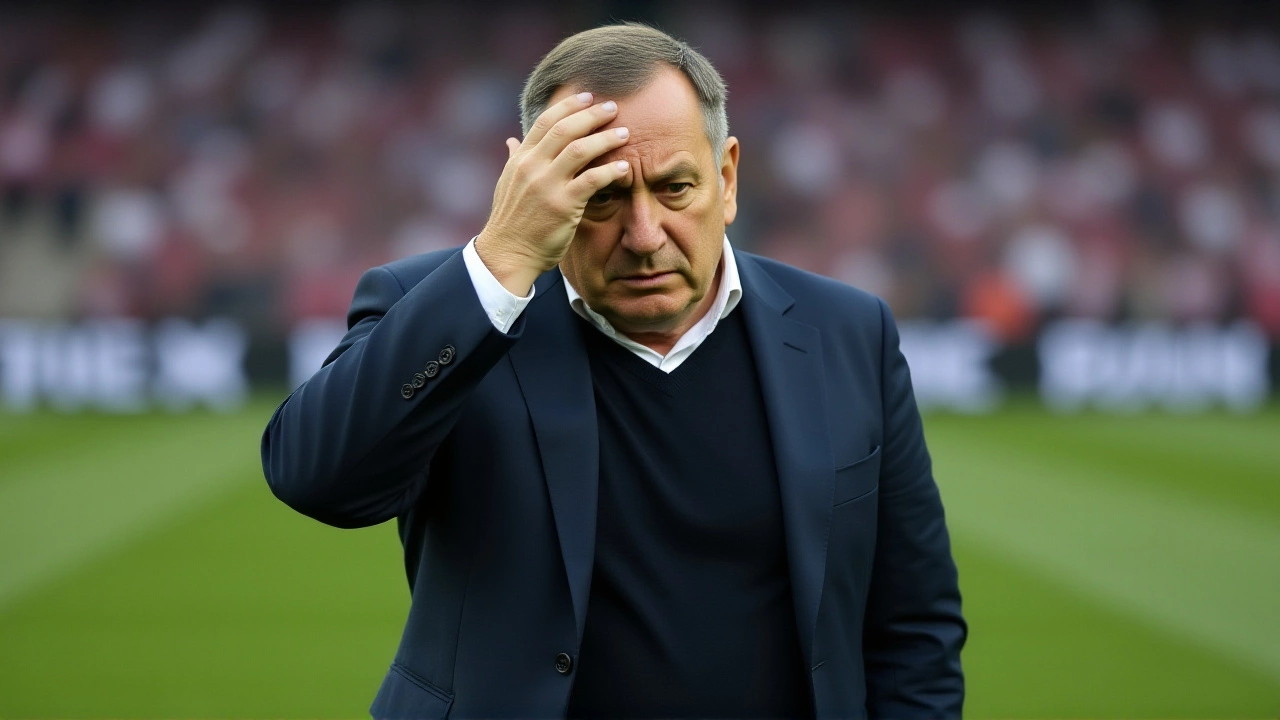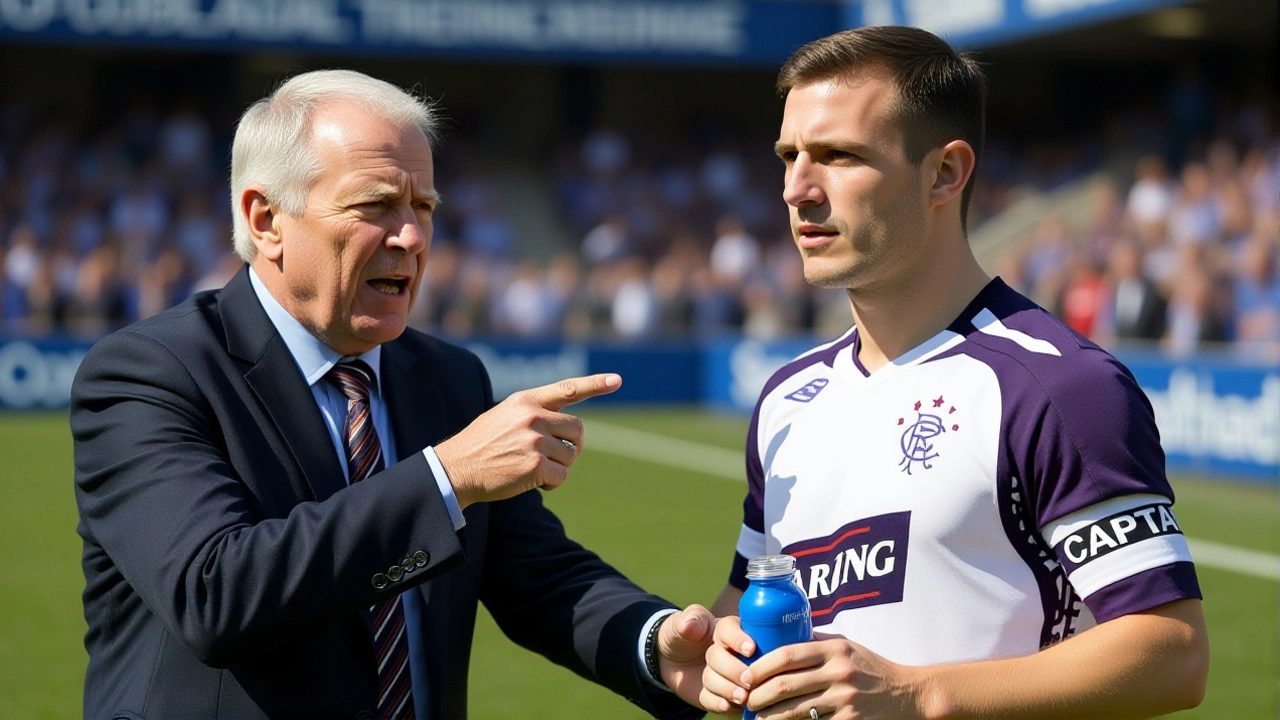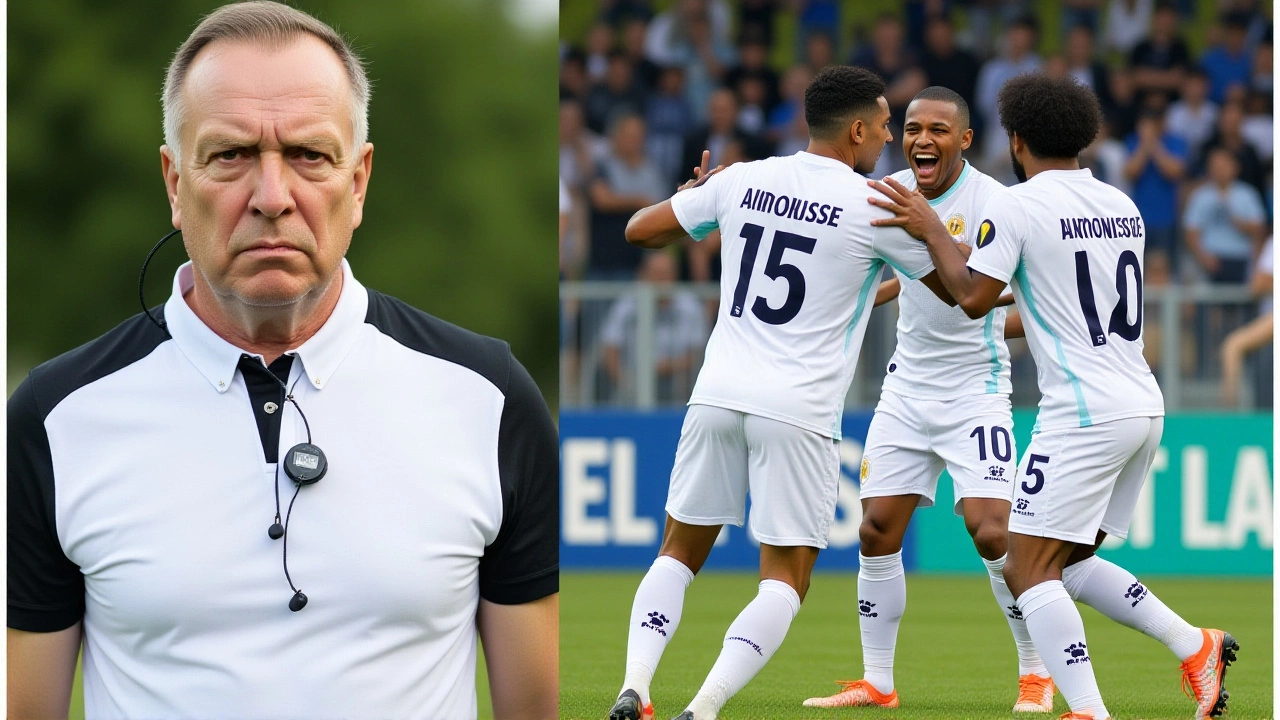Frank de Boer, the 54-year-old Dutch football legend turned manager, has officially walked away from the sideline — not with a farewell tour, but with a quiet, final sigh. Frank de Boer, once hailed as Ajax’s golden boy and later entrusted with national teams and MLS franchises, confirmed in November 2025 that he’s done with coaching. The decision comes more than a year after his December 11, 2023, dismissal from Al Jazira, the Abu Dhabi-based club where his managerial career unraveled in just 14 matches. He didn’t quit. He was fired. And now, he says, he’s had ‘enough of...’ — the phrase, cut off in reports, speaks louder than any press release ever could.
The Final Chapter in Abu Dhabi
De Boer’s tenure at Al Jazira began with promise. Hired on June 5, 2023, to replace Marcel Keizer, he signed a two-year deal with expectations of elevating a club that had finished third the previous season. But by December, the wheels had come off. A 4-2 home loss to Al Wahda FC in the UAE League Cup quarterfinals was the final straw. The team sat seventh in the league, with just six wins in 14 games — a 1.50 points-per-match average, well below his career norm. No one expected fireworks, but this was a collapse. The club’s board didn’t wait for the new year. They moved fast.
A Career of Near-Misses and Short Tenures
De Boer’s managerial record — 229 wins, 75 draws, 92 losses in 396 matches — looks respectable on paper. But the story’s in the timing. His career has been a series of promising starts and abrupt endings.
At FC Internazionale Milano in 2016, he lasted just 85 days. Four defeats in five Serie A games, including a 1-0 loss to UC Sampdoria on October 30, 2016, left Inter in 12th place. Fans still remember the chaos: players openly questioning his tactics, the 4-3-3 formation looking rigid, not fluid. He was gone before Halloween.
Then came Crystal Palace in July 2017. Five matches. One win. Four losses. A 0.60 points-per-match average. He lasted 58 days. The Premier League, as he later admitted in interviews, was a culture shock — too fast, too loud, too unforgiving.
Even his most successful stint — at Atlanta United FC — ended on a sour note. He won the U.S. Open Cup and Campeones Cup in 2019, turning Ezequiel Barco into a breakout star as MLSsoccer.com noted. But after a winless run in the MLS is Back Tournament in 2020, he and the club parted ways. It wasn’t acrimonious, but it was telling: even good runs don’t always last.

The Netherlands Experiment: A National Disappointment
His role as head coach of the Royal Netherlands Football Association (KNVB) from September 2020 to June 2021 was perhaps the most painful. He became the first Netherlands manager to lose his first four matches — including a 0-0 draw with Spain that drew ridicule across Europe. He finished with 8 wins in 15 games, but the damage was done. The Dutch public, used to flair and dominance, saw a cautious, tactical coach who didn’t fit their identity. He was replaced before the 2022 World Cup qualifiers even began.
Why Now? The Weight of the Game
De Boer’s retirement isn’t just about losing jobs. It’s about losing the will to fight. His last two roles — in the Premier League and Serie A — were described by Goal.com and Xhibition.co as “horrific.” The pressure, the scrutiny, the endless media cycles, the player egos, the boardroom politics — it all piled up. After Al Jazira, he didn’t take calls. He didn’t attend coaching seminars. He didn’t accept offers from national federations or Gulf clubs looking for a familiar name.
Instead, he’s focusing on personal life and media work. He’s appeared on Dutch TV as a pundit, offering sharp, thoughtful analysis — the kind you’d expect from someone who played 112 games for Ajax and won four Eredivisie titles as a defender. He’s back in the Netherlands, near his hometown of Hoorn. He’s spending time with his family. He’s not hiding. He’s just not coaching anymore.

Legacy: A Tactical Mind, a Weary Soul
De Boer’s tactical fingerprint remains clear: the 4-3-3, always. He believed in structured buildup, positional discipline, and developing young talent — a philosophy that worked in Amsterdam and Atlanta but clashed in Milan, London, and even Abu Dhabi. He was never a motivator in the Mourinho mold. He was a thinker. A quiet man who preferred diagrams over speeches.
And yet, the game didn’t reward that. It demanded charisma. It demanded wins, fast. It didn’t care that he had a plan. It only cared that the team lost.
His playing career — as a composed, elegant center-back for Ajax and the Dutch national team — was revered. His managerial career? A series of what-ifs. What if he’d stayed at Ajax longer? What if Inter had given him time? What if the Netherlands had backed his vision?
Now, we’ll never know. He’s done.
Frequently Asked Questions
Why did Frank de Boer retire so soon after being sacked by Al Jazira?
De Boer didn’t retire immediately after the sacking — he took time to reflect. But his previous managerial failures — especially the brief, brutal tenures at Crystal Palace and Inter Milan — left him disillusioned. The Al Jazira dismissal was the final confirmation: the modern game no longer rewarded his methodical, development-focused approach. He told close friends he was tired of being judged by short-term results.
Did Frank de Boer turn down any offers after leaving Al Jazira?
Yes. Multiple sources, including Dutch media, confirm he was approached by at least two national teams — including one from Asia — and several clubs in the Saudi Pro League. He declined them all. His focus shifted to media appearances and family. He reportedly told one recruiter: ‘I’ve coached enough teams. I’d rather coach my kids now.’
How does Frank de Boer’s record compare to other Dutch managers?
De Boer’s 1.92 points per match is solid, but below the likes of Louis van Gaal (2.08) and Ronald Koeman (2.01). What sets him apart is his consistency in player development — particularly at Ajax and Atlanta — rather than trophy hauls. His career reflects the tension between Dutch football’s traditional ideals and modern, results-driven demands.
Is there any chance Frank de Boer will return to management?
All signs point to no. He’s publicly ruled out a return, and those close to him say he’s at peace with the decision. Even when Al Jazira’s replacement failed spectacularly in 2024, De Boer didn’t comment — not even to say ‘I told you so.’ His silence speaks volumes: he’s done with the game’s emotional toll.
What impact will De Boer’s retirement have on youth development in football?
His departure is a loss for long-term player growth. At Atlanta, he transformed Ezequiel Barco into a star and gave young Americans like Efrain Alvarez meaningful minutes. His structured 4-3-3 system was ideal for nurturing technical players. Without him, clubs may lean more toward immediate results, potentially sidelining development-focused coaches in favor of tactical pragmatists.
What’s Frank de Boer doing now?
He’s working as a football analyst for Dutch broadcaster NOS, offering calm, insightful commentary on Eredivisie matches. He’s also involved in a youth coaching clinic in Hoorn, mentoring local coaches on positional play and decision-making — no longer on the sidelines, but still shaping the game, just differently.
